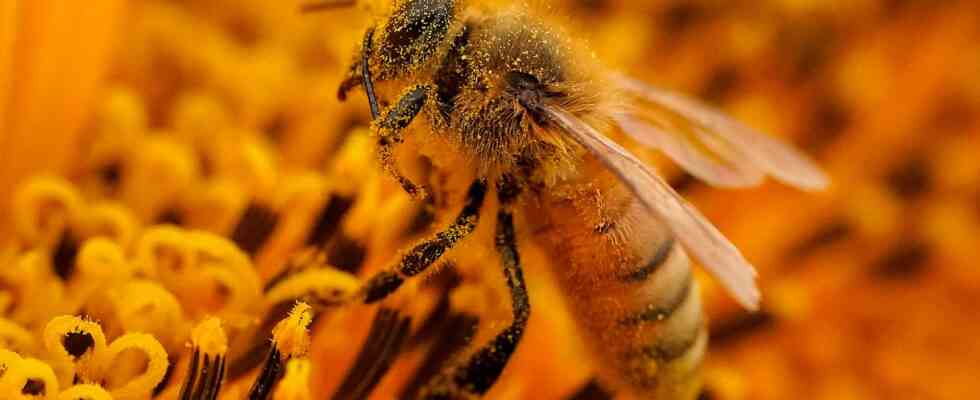Status: 11/29/2022 5:58 p.m
Our economic system depends on biodiversity in many places. Experts are therefore calling for a fundamental change. The motto: “Economy needs nature”.
Doing business with nature and not against it – this is what numerous scientists and representatives of non-governmental organizations are calling for a week before the start of the UN biodiversity conference in Montreal. They call for a fundamental change in the economic system.
Economic system also depends on biodiversity
According to the “Frankfurt Declaration”, which the alliance presented today, a decisive turnaround is necessary. In the end, there must be an economic order “that charges a reasonable price for the use of nature”. This means that an economy is needed that also reflects the costs that arise from the loss of biodiversity. It’s not just about money, it’s about protecting natural areas on a grand scale.
In many places, the economic system depends on biodiversity. An example: cocoa. The plants are pollinated by only two species of insects. These are species that feel quite comfortable in tropical forests, explains tropical biologist Frauke Fischer ARD Capital Studio. However, most cocoa is grown in monocultures in the sun – these are bad living conditions for the mosquitoes. If these two species were to go extinct, there would end up being far less cocoa.
Species extinction causes global hunger
But it’s not just about cocoa and the chocolate industry, as the initiators of the “Frankfurt Declaration” make clear. Christof Schenck, winner of the German Environmental Prize 2022 and Managing Director of the Frankfurt Zoological Society, describes the situation as dramatic. There is currently a mass extinction, he says.
About 150 species die out every day – both animals and plants. If no countermeasures are taken, this could have fatal consequences, the researcher describes: “Three quarters of all crops are pollinated by insects. If we no longer have insects, we will have to starve massively – worldwide.”
Value chains contribute to the destruction
It is therefore in the interest of all companies to work to preserve biodiversity, which is currently hardly happening. “The global value chains of German companies have a significant impact on nature and often contribute to its destruction,” the statement said. However, the group also sees a will to change course in order to do business in a more environmentally friendly way. More and more companies are willing to take responsibility.
According to the researchers, incentives must be created for companies to operate more sustainably. Jörg Rocholl, President of the international business university ESMT in Berlin, emphasizes that “there is no concrete price for the loss of nature we are experiencing”.
The initiators call for the creation of a system for measurable species protection. An idea: As with the CO2 price, the destruction of biodiversity should also have a price tag. In principle, the consequences of the loss of species are still underestimated, especially in comparison to the climate crisis.
Solidarity of social groups required
In order to create the conditions for companies to change course, the group calls for a “collaboration between science, politics, business and civil society”. Together they should work out how companies can earn money and still protect nature. Politicians must create the appropriate framework conditions. The demand: “uniform competitive conditions” with the aim of “making nature-positive management the standard”.
Companies would also have to be obliged to submit a regular report on how they use natural resources. Topics that will also be discussed at the World Conference on Nature, which starts next week in Montreal. One of the major goals there will be to protect at least 30 percent of the world’s land and sea areas by 2030.
More biodiversity: Scientists call for change in the economy
Eva Huber, ARD Berlin, November 29, 2022 5:29 p.m


